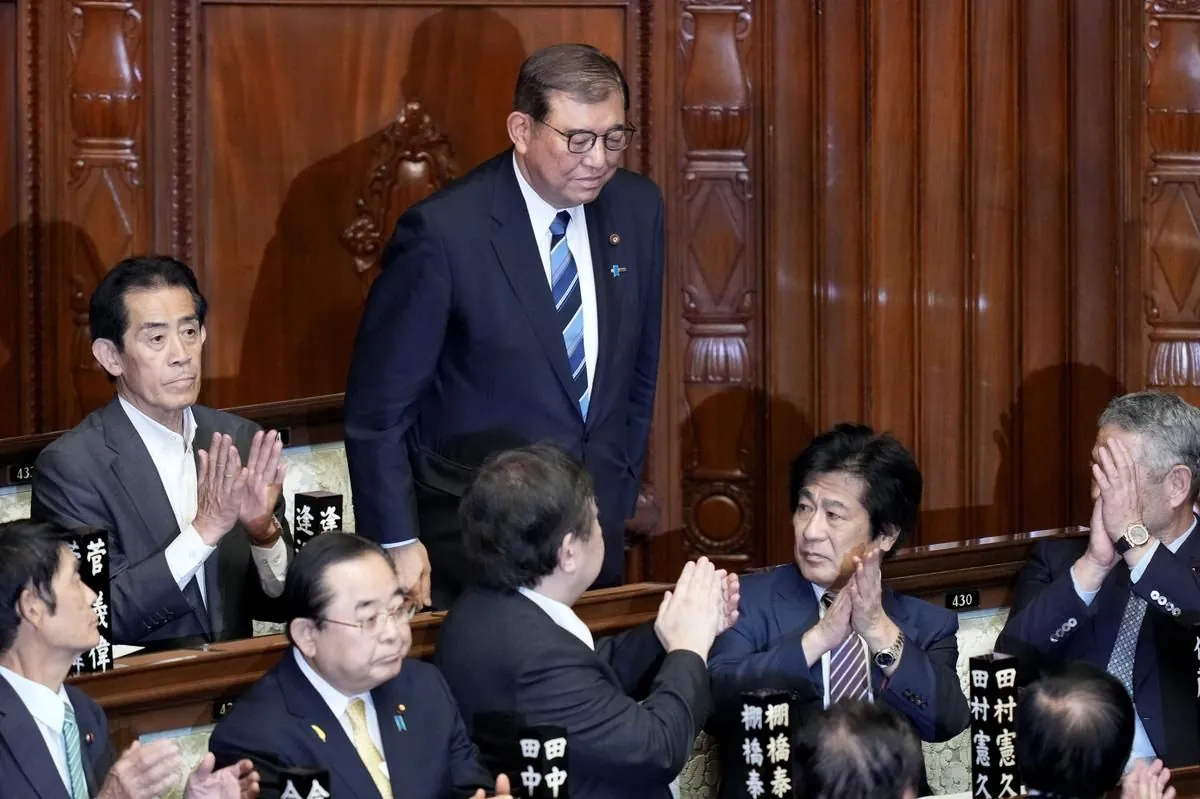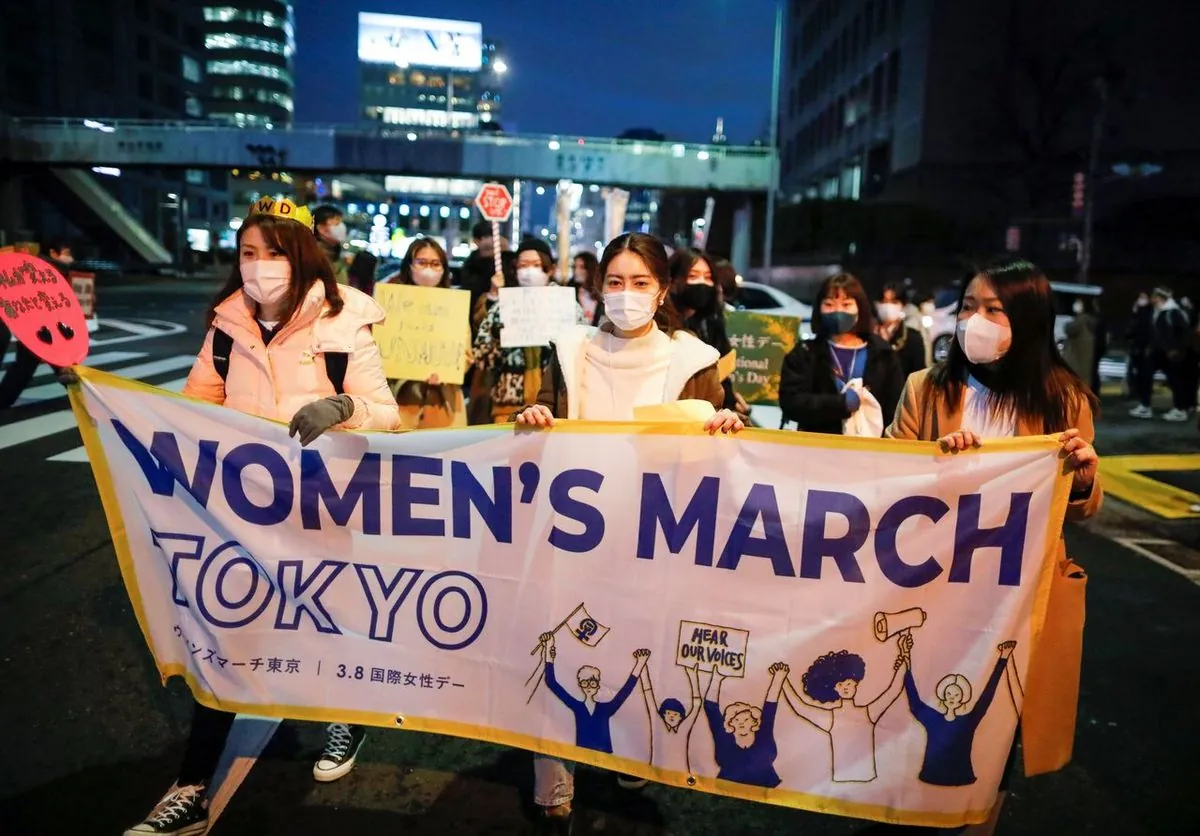Japan's New Cabinet: Female Representation Declines Under PM Ishiba
Japan's new Prime Minister Shigeru Ishiba appoints only two women to his 20-member cabinet, down from five previously. This move raises concerns about the country's commitment to gender equality in politics.

In a move that has raised eyebrows among human rights advocates, Shigeru Ishiba, Japan's newly appointed Prime Minister, has selected only two women for his 20-member cabinet. This decision marks a significant decrease from the previous administration, which included five female ministers.
The appointment of Junko Mihara to oversee children's policies and Toshiko Abe to manage education represents a mere 10% female representation in the new cabinet. This figure stands in stark contrast to the gender diversity seen in other G7 nations and has prompted concerns about Japan's commitment to advancing women's roles in politics.
Teppei Kasai, Asia programme officer at Human Rights Watch, expressed disappointment with the new cabinet composition, stating, "Going from five women cabinet members, which was already extremely low, to two, is a reflection of just how far Japan has to go in terms of women empowerment and equality."
This development comes at a time when Japan is grappling with significant demographic challenges. The country boasts the world's oldest population, with 28.7% of its citizens aged 65 or older as of 2023. Additionally, Japan's fertility rate stood at 1.3 children per woman in 2022, well below the replacement level of 2.1, highlighting the urgent need for policies that support women's participation in both the workforce and political spheres.

The Liberal Democratic Party (LDP), which has dominated Japanese politics since its founding in 1955, has set an ambitious goal to increase the proportion of female lawmakers from the current 10% to 30% over the next decade. However, the recent cabinet appointments have cast doubt on the party's commitment to this objective.
Japan's struggle with gender equality extends beyond politics. The country ranked 118th out of 146 nations in the World Economic Forum's 2024 gender gap report, the lowest among G7 countries. This ranking reflects broader societal issues, including a significant gender wage gap of 22.1% in 2021, surpassing the OECD average of 12.5%.
"In terms of the representation of women in the political arena, it's a clear backslide."
The upcoming snap election on October 27, 2024, will be a crucial test for the LDP's commitment to increasing female representation. The party has promised to implement measures such as providing childcare support and establishing a fund to assist female candidates. However, concrete details on these initiatives remain scarce.
In contrast to the LDP's approach, the main opposition Constitutional Democratic Party of Japan has announced a record eight women in its 20-member shadow cabinet, potentially setting the stage for a more diverse political landscape.
Japan's journey towards gender equality in politics has been slow but not without progress. The country elected its first female governor in 2016, and has had three women serve as foreign ministers. However, it has yet to see a woman in the role of prime minister or finance minister.
The current situation reflects a broader historical context. Japan's first female cabinet member was appointed in 1960, and the first woman elected to the Japanese Diet was Shidzue Katō in 1946. Despite these milestones, progress has been incremental. The introduction of the Equal Employment Opportunity Law in 1985 and the law promoting women's participation in the workplace in 2015 have aimed to address gender disparities, but their impact on political representation remains limited.
As Japan faces the challenges of an aging population and a shrinking workforce, the need for diverse perspectives in government has never been more critical. The World Economic Forum estimates it will take 135.1 years to close the global gender gap at the current rate of progress, underscoring the importance of proactive measures to accelerate change.
The coming months will be crucial in determining whether Japan can reverse this perceived "backslide" and make meaningful strides towards gender equality in its political landscape. The eyes of the world will be watching as the country navigates these challenges and strives to create a more inclusive and representative government.


































